15 of the best punk drummers
We round up the finest purveyors of fast, hard punk rock beats
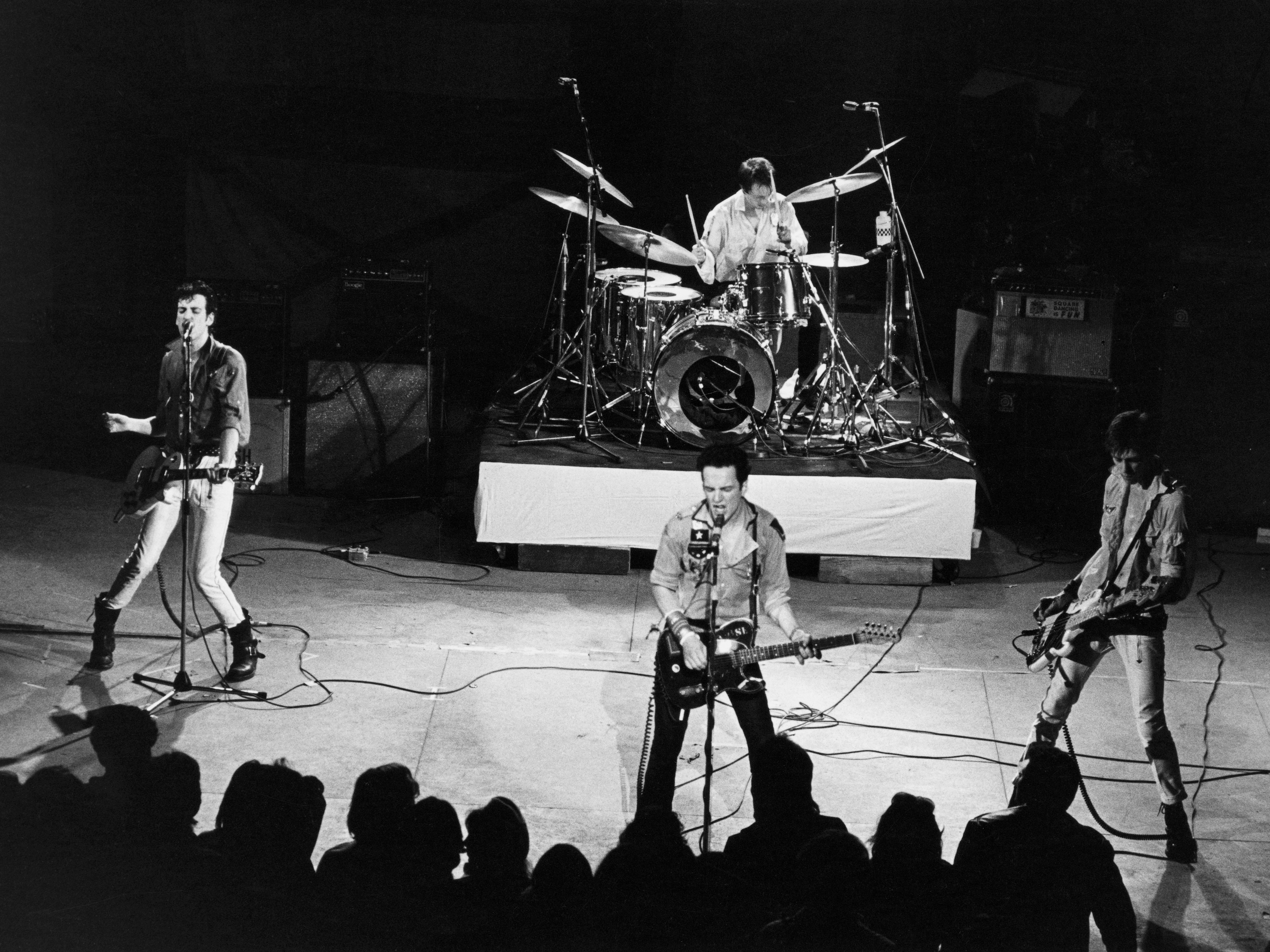
Topper Headon
Nick 'Topper' Headon may have been an unlikely choice for The Clash with his background in soul and jazz, but this versatility would help The Clash to assimilate many styles, from funk and reggae to jazz and rockabilly. His reggae chops, nifty hi-hat disco grooves, hard-hitting rock and punk are in evidence, particularly on the album London Calling, this year celebrating its 35th anniversary.
Topper, who had started with The Clash as a keep-fit fanatic with little time for cigarettes and alcohol, was eventually kicked out of the band for his heroin addiction – "for being untogether"as he put it to Rhythm in 1986.
"The Thing about The Clash was nobody could really play,” Topper told Rhythm that year, “so it had to be spontaneous! With musicians of the calibre I had on my [1986 solo] album, you don't have to over-rehearse them – they just go in there and do it in one or two takes. So it still sounds fresh, but in a different way."
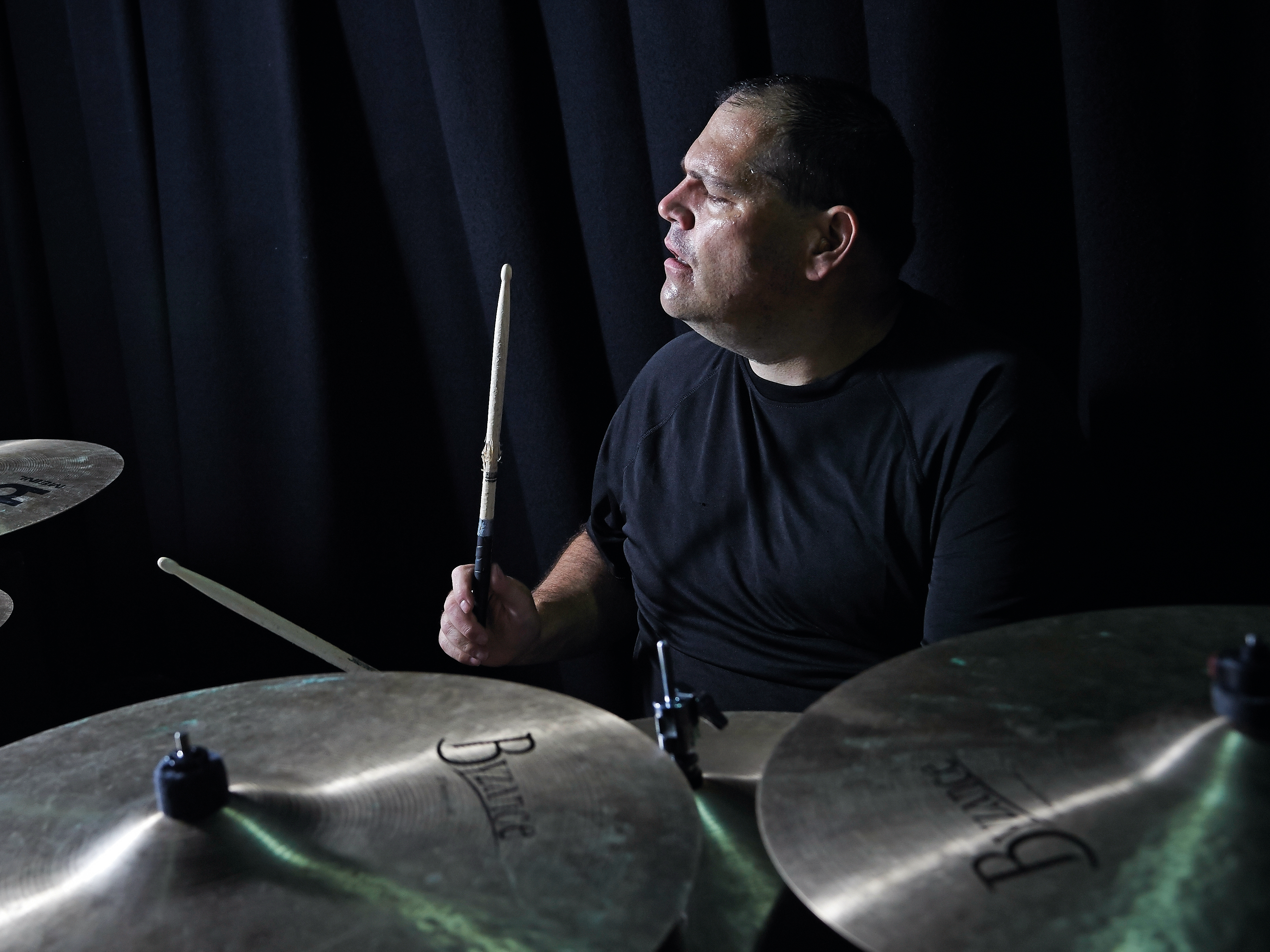
Bill Stevenson
Bill Stevenson
Bill Stevenson played in not one but two great American punk bands, The Descendents and Black Flag. Of the former band's short and very fast bursts of energetic punk, Bill recently revealed to Rhythm:
“In our band we would drink a bunch of coffee or I’d eat 50 Snickers bars before we played. It was in the air for us to play fast and with the deliberate eighth notes. We aspired to that. We would take a whole jar of instant coffee and almost fill the cup with the coffee and add water. We called that the bonus cup. We were doing that before Espresso was readily available, there was no Starbucks. We would drink that and write ridiculous songs like ‘Weinerschnitzel’ and ‘My Dad Sucks’, just these tiny weird songs at four million miles an hour.
“I think our sound just evolved as a consequence of increasing levels of competency and capability. I think with a lot of music, if you can do it faster then you do it faster. The stuff got faster as we learned how to play. Look at how far things have come where now you’ve got these metal drummers playing four million beats per second with 9,000 kick beats.”
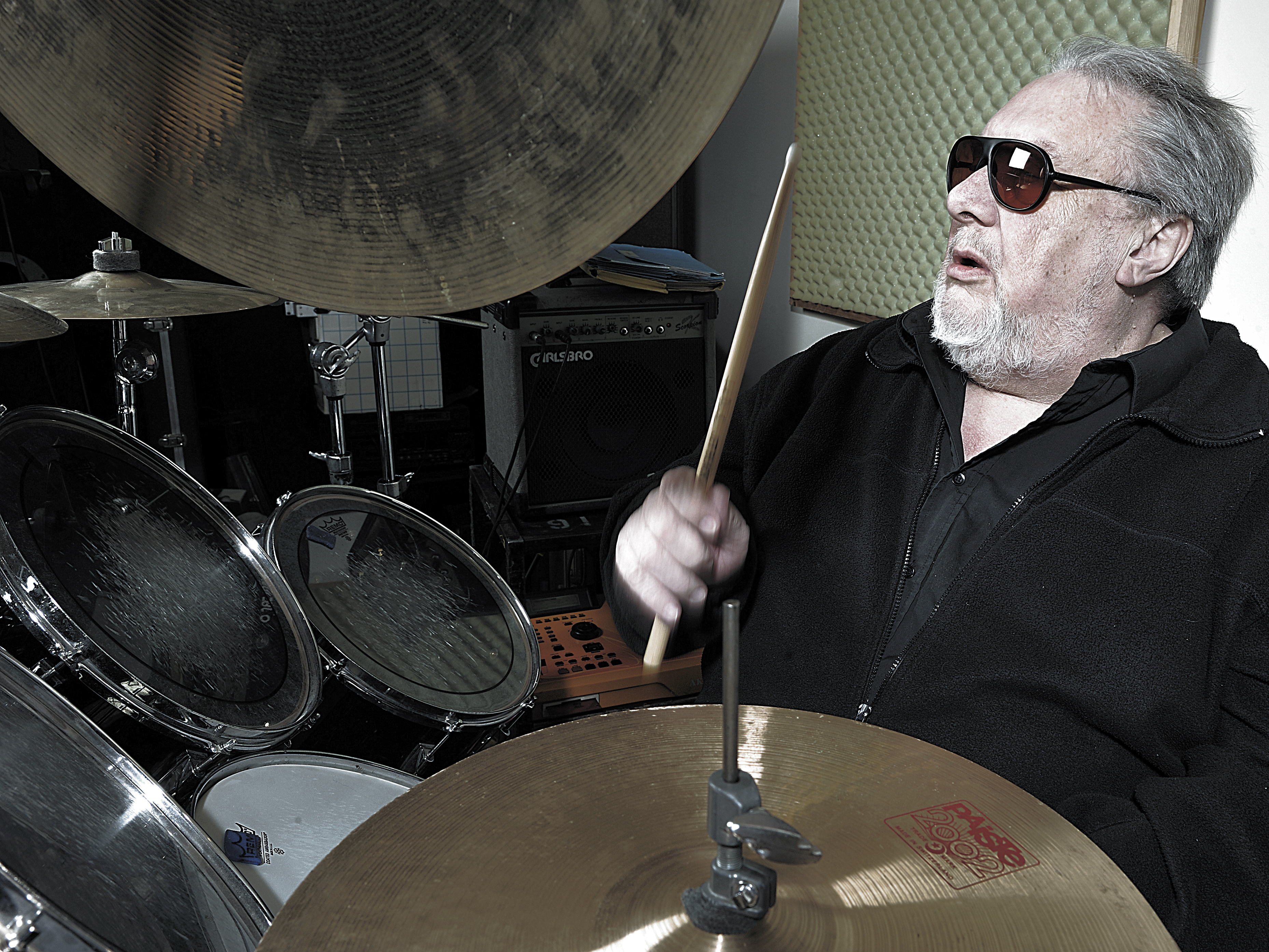
Jet Black
Stranglers drummer Jet Black was the grand old age (for a punk drummer) of 35 when he joined the Guildford 'men in black' rockers.
While the band themselves never considered what they did as punk, their attitude and sound meant they were generally considered a part of the 1970s British punk movement.
Jet told Rhythm, “We were accused of [being punk] but before this punk thing happened we were slogging away for a good three years. All the soon-to-be-formed punk bands, like the ’Pistols and The Clash, they used to come and see us. We were the band they idolised. We weren’t playing punk because we didn’t know what punk was. It hadn’t been invented. We were angry, not because we had this punk, phoney political anger. We were angry that we were finding it so difficult to make a living out of music… but of course all our angst was lumped together with everybody else’s as though it was all the same thing. We were saying, ‘We don’t care what you think, we’re going to do it anyway,’ and we did it with an edge.”
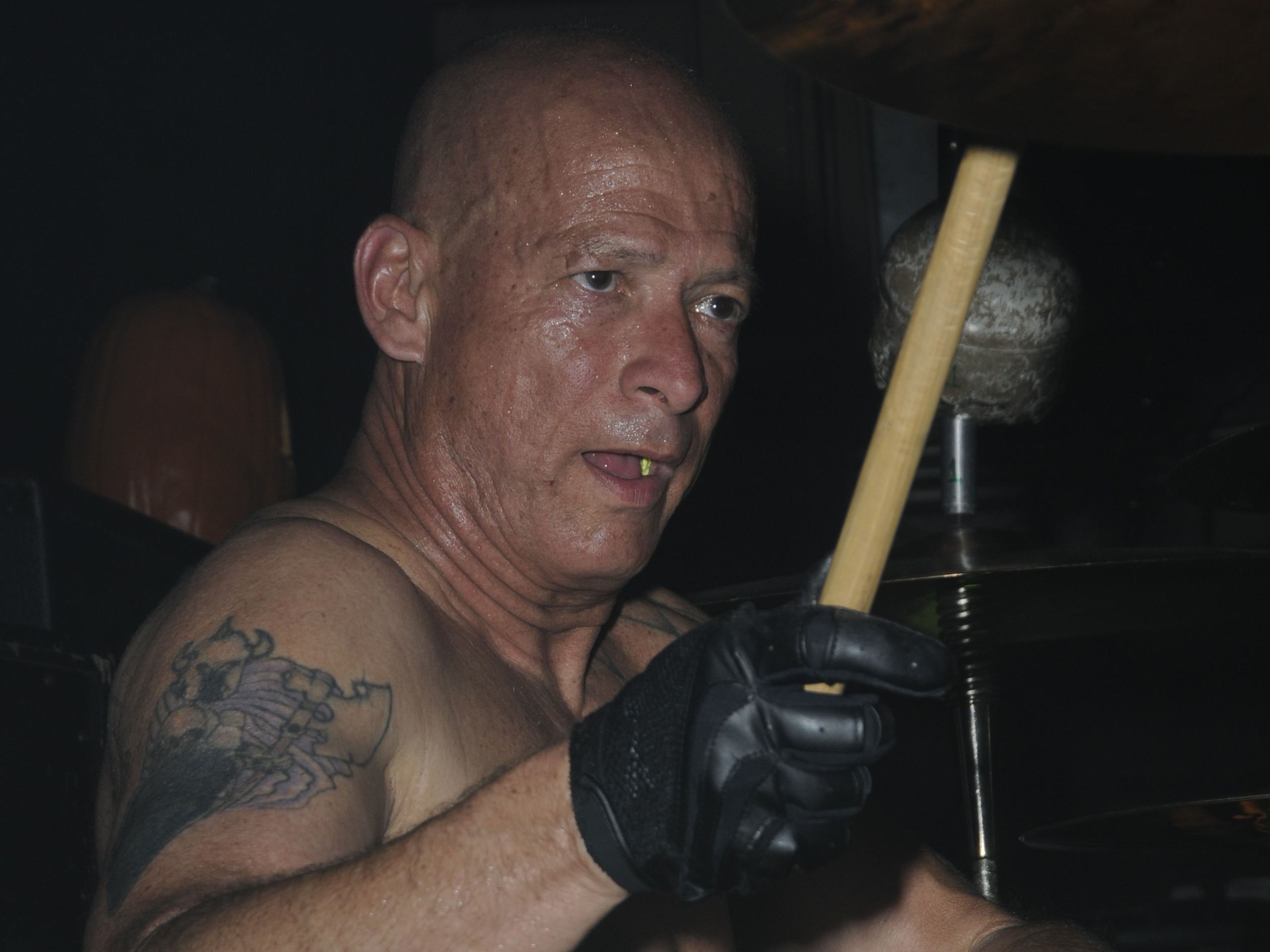
Robo
Roberto Valverde, aka 'Robo', has played in two US punk stalwarts, the Misfits and Black Flag.
Known for his brutal style and level cymbal set-up, Robo could be found smashing his transparent kit behind Black Flag during the period between 1978 and 1983 that produced, among other great cuts, the band's classic Damaged album. He joined Glenn Danzig's Misfits in 1983 and appeared on the album Earth AD/Wolf's Blood.
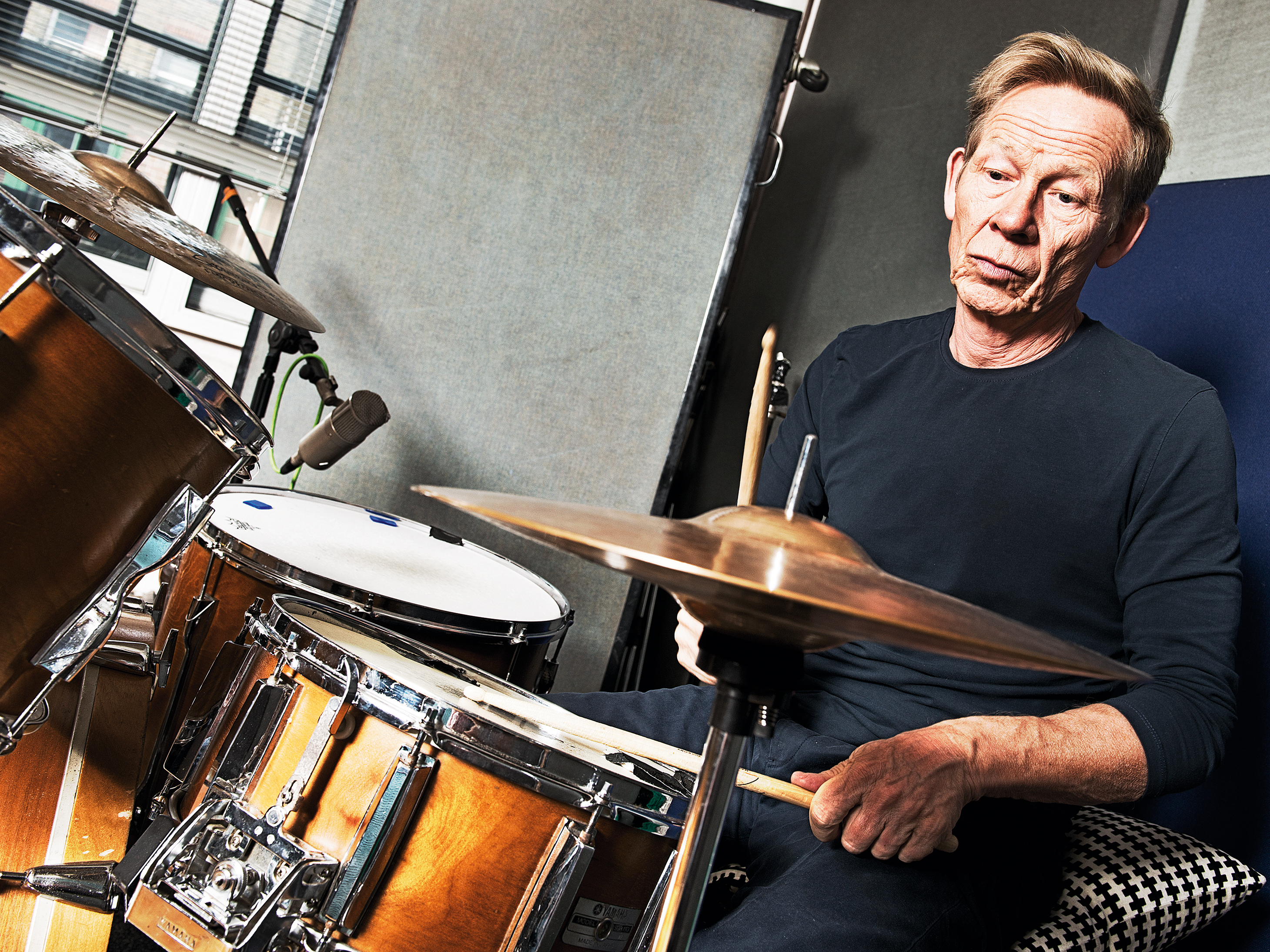
Paul Cook
Despite the lack of live gigs (many were cancelled due to the band's courting of controversy) and the shambolic reputation of the band, the drummer for daddy of all punk bands, The Sex Pistols, Paul Cook was no mean player, raised on a pre-punk diet of glam rock, Bowie and Roxy Music, and drummers Paul Thompson, Simon Kirke and Al Jackson. Upon joining the band that would kickstart the DiY punk movement in the UK, though, Cook's reputation as the original and best punk drummer was assured.
“We were a punk band but we wanted it to sound great,” Cook told Rhythm. “We used to really go for it when we recorded, I’d hit the drums really hard. We didn’t hold back and I think that got us that powerful sound. We didn’t pussyfoot about.
“Because of all of the adverse publicity with the band, the music sometimes got overlooked a little bit. Everyone thought we were just making headlines for the sake of it and people would just read the headlines and ignore the music because people thought the music was crap when it first came out. They thought it was just noisy, horrible punk stuff. It wasn’t until later that people gave us credit for the album. It was not a bad bit of musicianship, if I don’t mind saying so.”
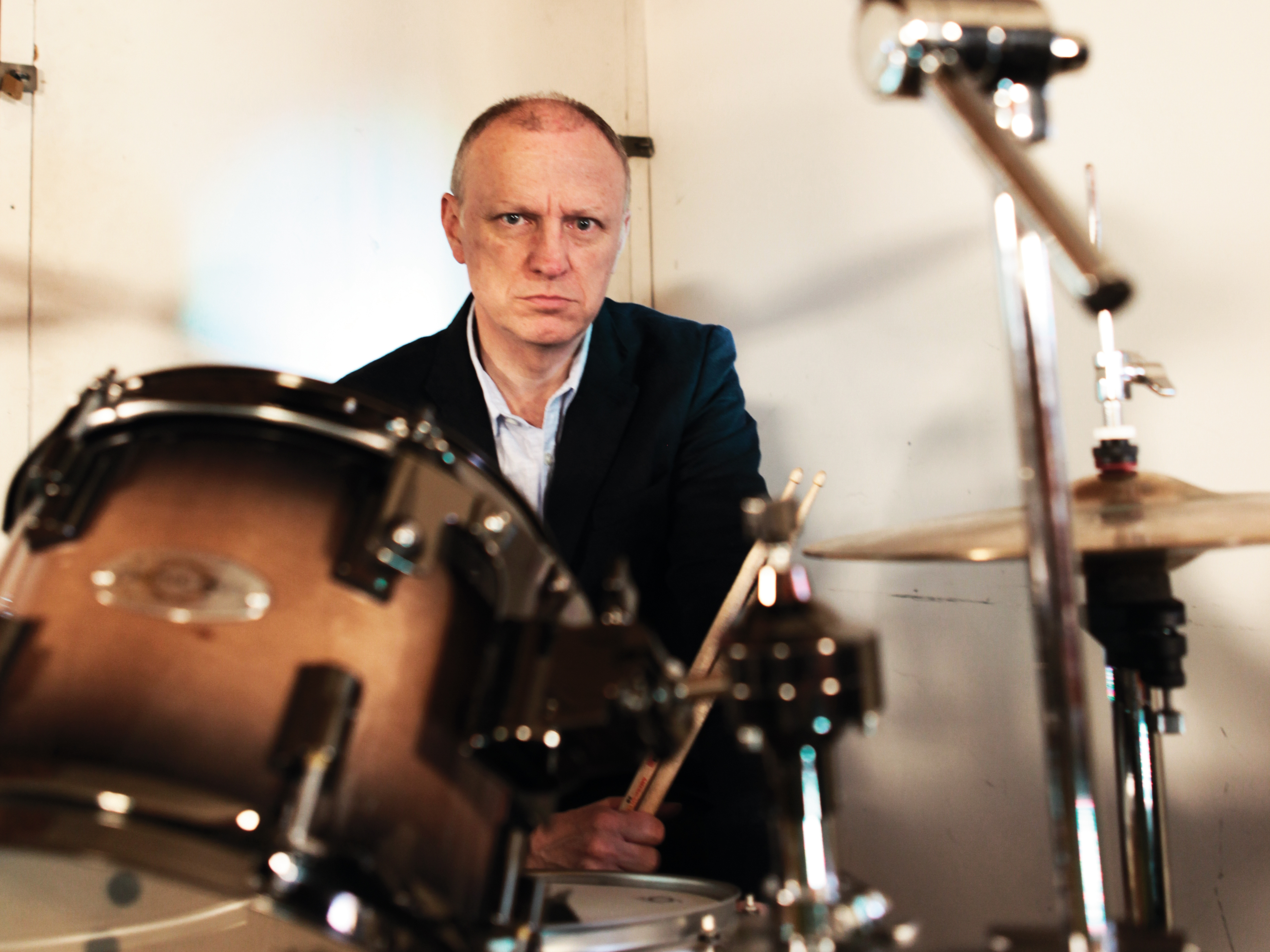
Terry Chimes
When punk rockers The Clash were formed from the ashes of the Bernie Rhodes-created London SS, it was Terry Chimes who was the band's original drummer, playing (and ending up uncredited) on the band's first album. His hard-hitting beats on 'London's Burning' and 'White Riot' set the standard for punk drummers on both sides of the Atlantic to follow. Chimes told Rhythm about the recording of that seminal first Clash album.
“We’d done a lot of gigs by then so we just walked into the studio and smacked down what we did live. It was probably the easiest, quickest album ever made. It’s good that we did that, because there was a huge amount of energy back then and we captured that. For ‘White Riot’ I remember we needed some extra rhythm so everyone was jumping up and down on this big bit of wood.”
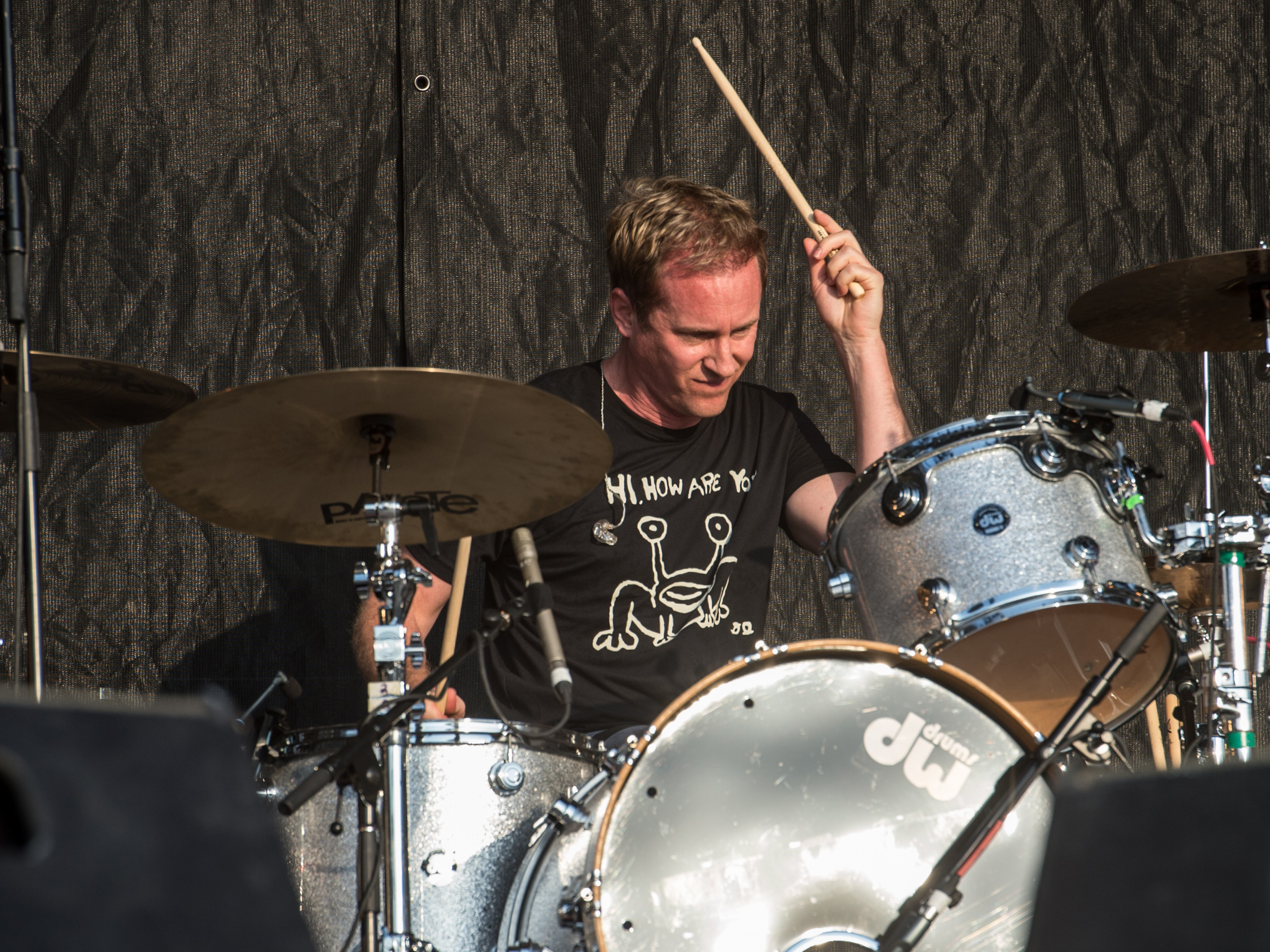
Josh Freese
Among the many 'drumming hats' worn by rock sessioneer extraordinaire Freese was as drummer for punk band The Vandals.
Of the many styles he's been called upon to turn his hand to, his fast but nifty drum grooves for the Californian punks make him worthy of inclusion here. Check out his band debut on The Vandals' 1990 album Fear Of A Punk Planet for proof of his punk drumming credentials. Of his varied playing CV and always busy schedule, Josh told Rhythm:
“There are tons of drummers that I know that really don’t work that much. So I know that I’m lucky to be in my position. I’m always flattered that people ask me to play on their records. Even if it’s some weird, obscure band that I’ve never heard of, I’m always appreciative of the fact that they want me to play drums for them.
“I have friends who are rock stars who have sold like, 35 million records. But I’ve never been in the situation of being in a band that’s sold that much. I think because I’ve never experienced that level of success, I’ve never become lazy. I still always feel I have something to prove.”
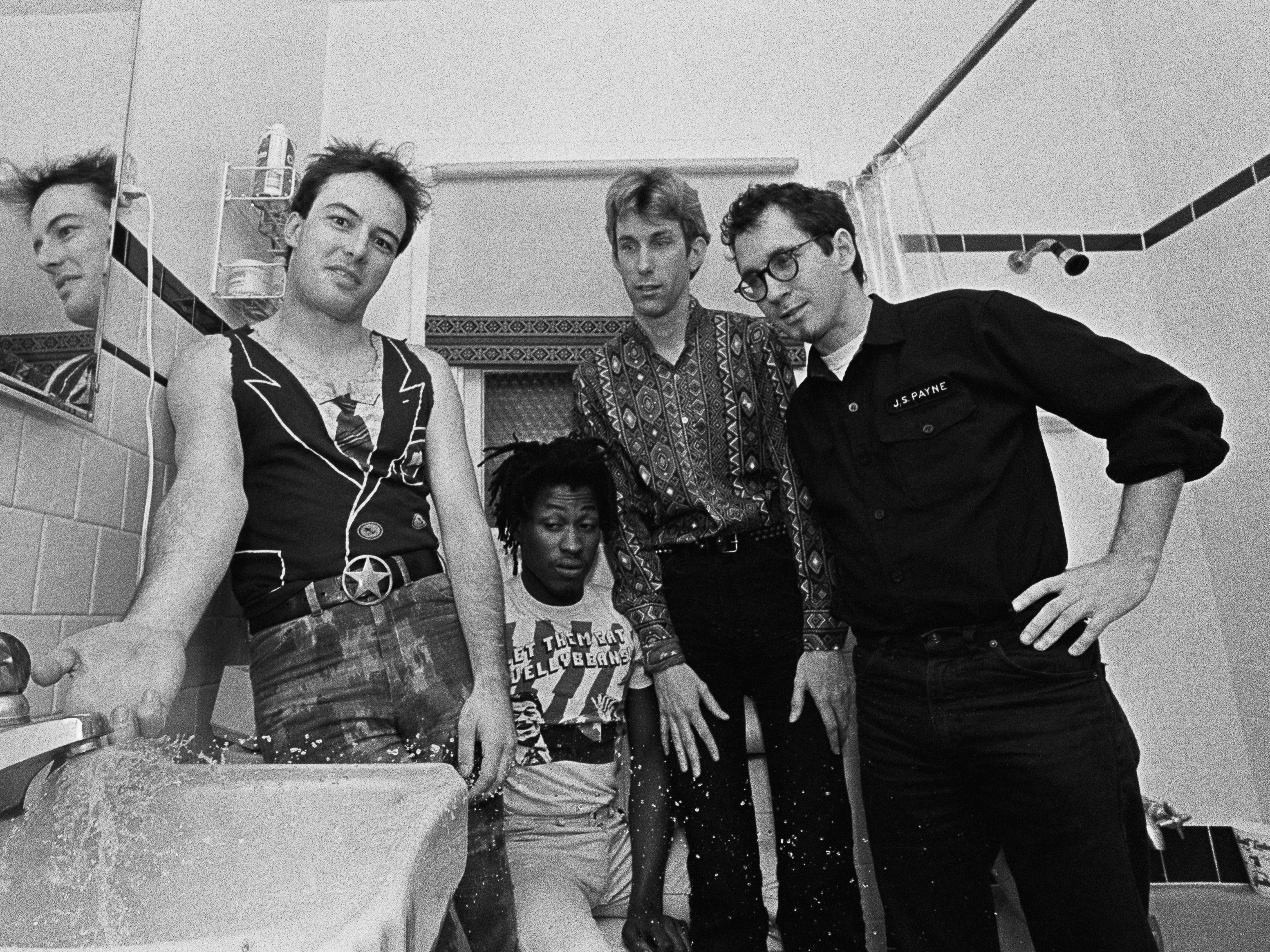
DH Peligro & Ted
One of punk's greatest ever bands, The Dead Kennedys had two fantastic drummers in the form of Ted (aka Bruce Slesinger), who powered the classic tracks 'Holiday In Cambodia' (which he co-wrote), 'Kill The Poor', 'Let's Lynch The Landlord' and 'California Uber Alles', with its awesome tom groove.
After his departure, Jello Biafra and co called on the fantastic DH Peligro who stayed with the band until their dissolution in 1985, appearing on great records like Plastic Surgery Disasters and In God We Trust Inc. Peligro also has the distinction of being Chad Smith's predecessor in the Red Hot Chili Peppers, joining his friends Flea and Antony Keidis after the departure of Jack Irons, and helping to create the Mother's Milk album before Chad took over.
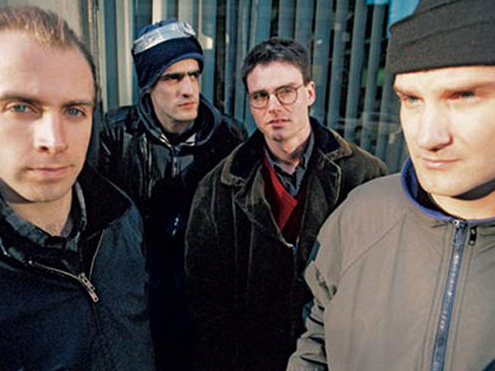
Brendan Canty
DC legends Fugazi were formed in 1987 by Minor Threat's Ian MacKaye, bassist Joe Lally plus guitarist Guy Picciotto and drummer Brendan Canty from emo prototypes Rites Of Spring. Throughout the late '80s and '90s, Fugazi's DIY values shaped the temperament and tone of American hardcore.
Brendan started drumming at 15 in a short-lived band called Deadline before joining Rites Of Spring. A multi-instrumentalist, he brought many key riffs to Fugazi's later songs while on the kit, Canty's measured rhythm changes, rim shots and explosive bursts of power glued their distinctive sounds together. Canty's interesting rhythms and beat placements lifted the music far above their post-hardcore contemporaries.
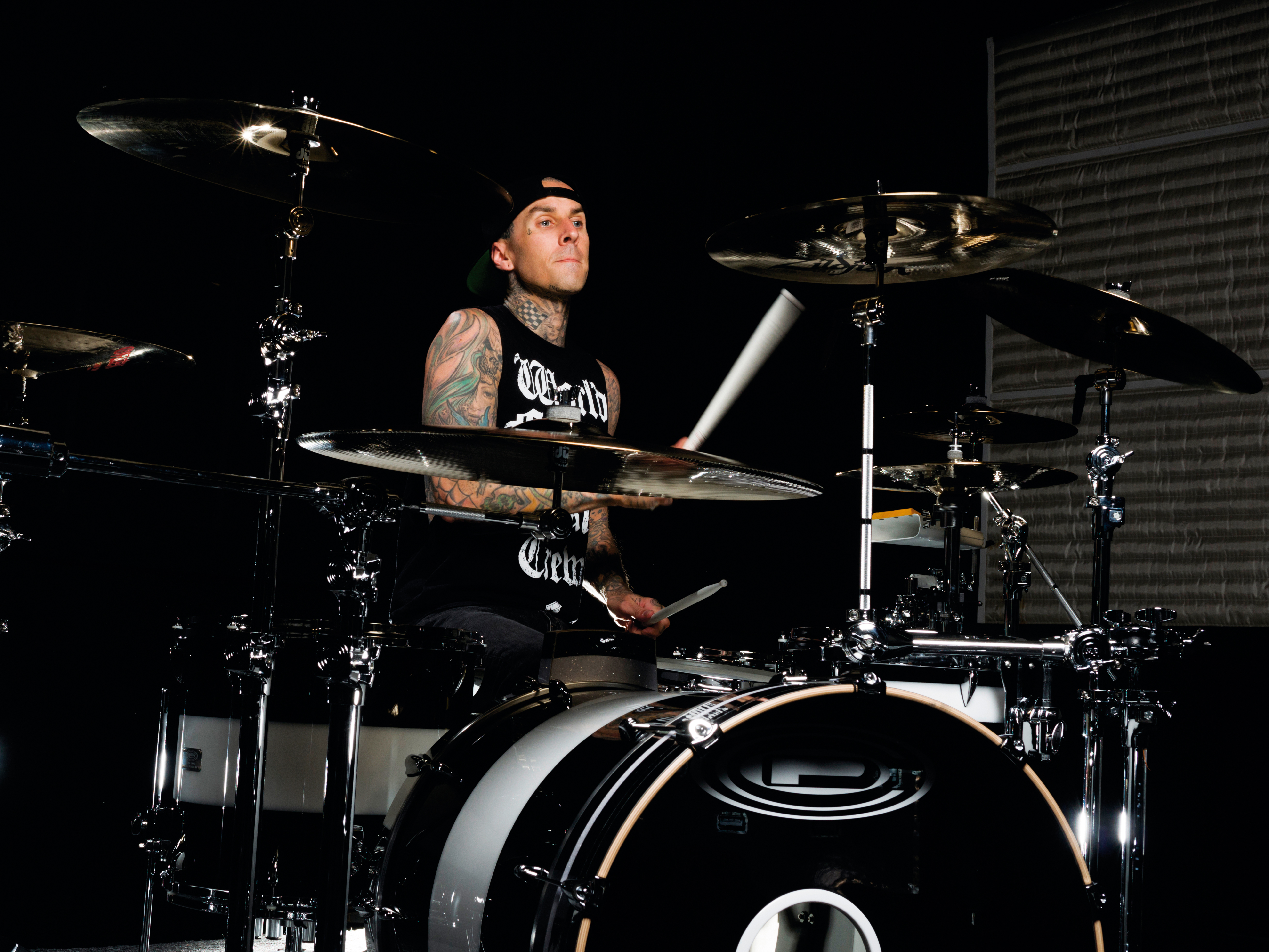
Travis Barker
Travis first came to our attention as the sticksman in pop-punk trailblazers Blink-182, but these days Travis can count hip-hop producer and educator among his many facets as a musician.
He joined Rancid's Tim Armstrong in Transplants and put out an album of hip-hop (with live drums of course) in 2010. When Rhythm last spoke to Travis last year, he revealed something of his philosophy on self-improvement at the kit.
“Chops from marching band really got me in a routine of always practising,” he says. “Then it was a matter of, make up my own exercises that I found would keep my chops sharp when I was on tour. Whether it be sitting around playing on a practice pad, or going and playing bossa nova patterns with my feet and trying to solo over them. Always challenging myself. I think once you’re given the fundamentals, it’s up to you to grow. It’s always been something that’s grown over time. I still love practising, pushing and challenging myself. Coming up with new ideas or chops.”
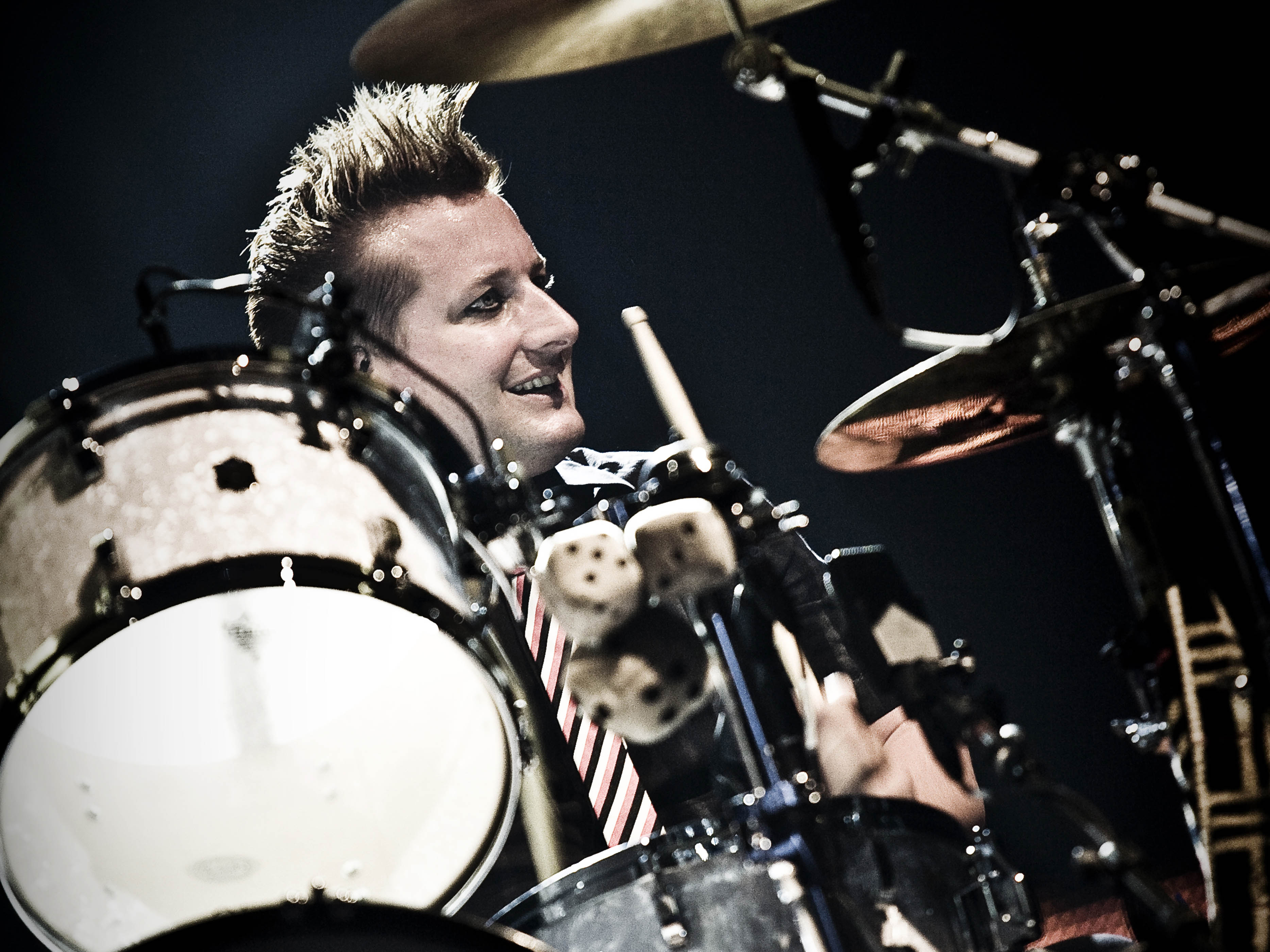
Tre Cool
Califronian trio Green Day put themselves on the punk map with the release of their 1994 album Dookie, with drummer Tre Cool immediately making his own personal mark with his fantastic grooves on the likes of 'Basket Case', 'When I Come Around', 'Welcome To Paradise' and the tom-tastic 'Longview' and his kit-smashing live showmanship.
With American Idiot, 10 years later, they became a household name and more recently even took that album to Broadway. Safe to see things have come along way for the band since the early, snotty punk days, as Rhythm put it to Tre in 2009.
“I think we’re really good at recording now,” he revealed. “We’ve learned so much over the years. I think we use our experience and that helps the process. We have loads of songs too. It’s easier to come up with an idea but to actually wring it out and make the song as good as it can be, and make it make sense in what the band is trying to do, it’s not become easy, but we’re getting really good at it.”
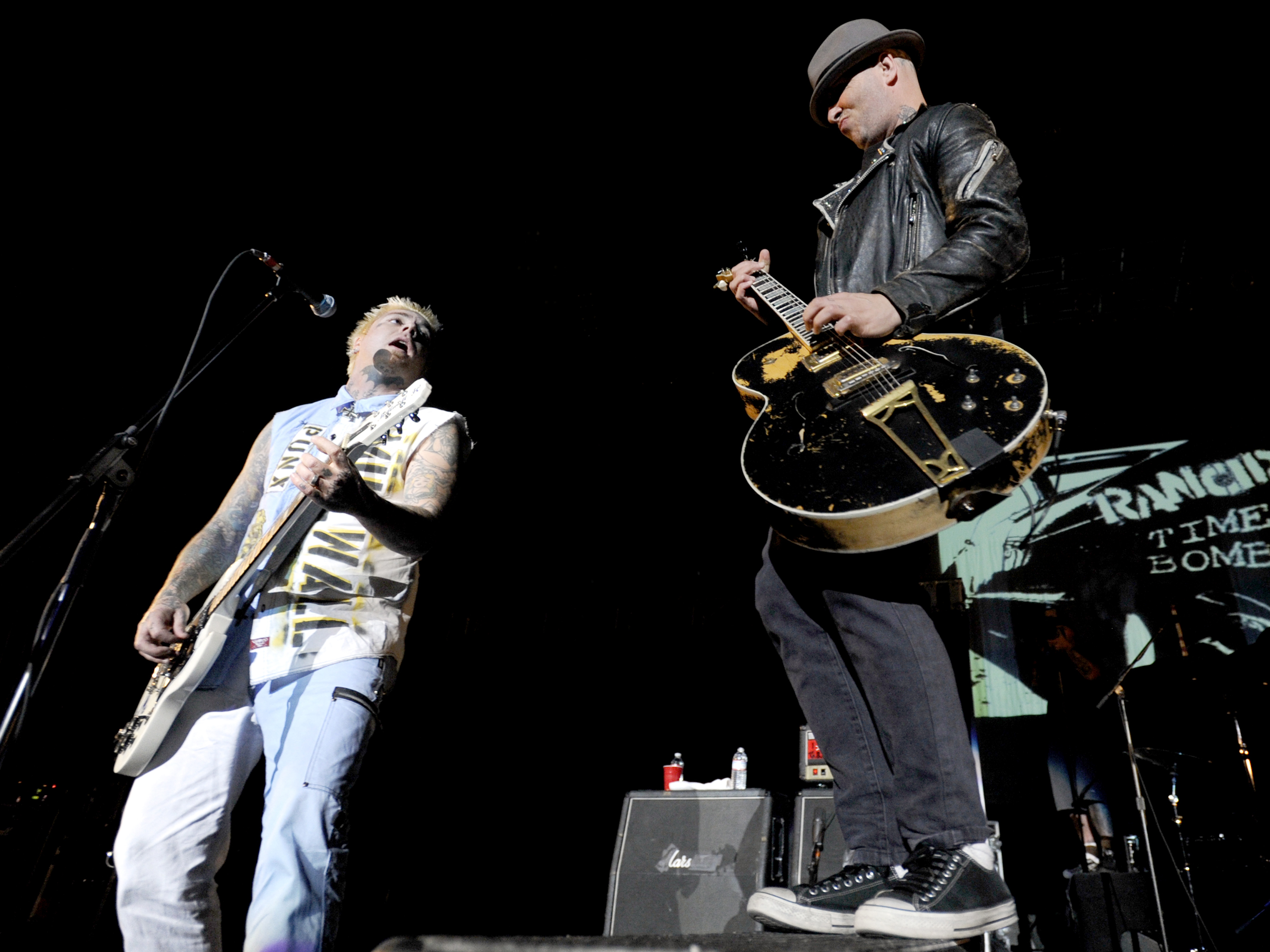
Brett Reed
Stalwarts of the '90s punk revival, and still going strong, Tim Armstrong and Lars Frederiksen's Rancid were powered, left-handed, through their first brilliant albums by drummer Brett Reed.
Reed's ska-tinged beats played off the skanking guitar riffs and melodic bass to create great tunes like 'Timebomb', 'Journey To The End Of The East Bay', 'Ruby Soho' and 'Salvation'. Reed left the band in 2003 after their Indestructible album.
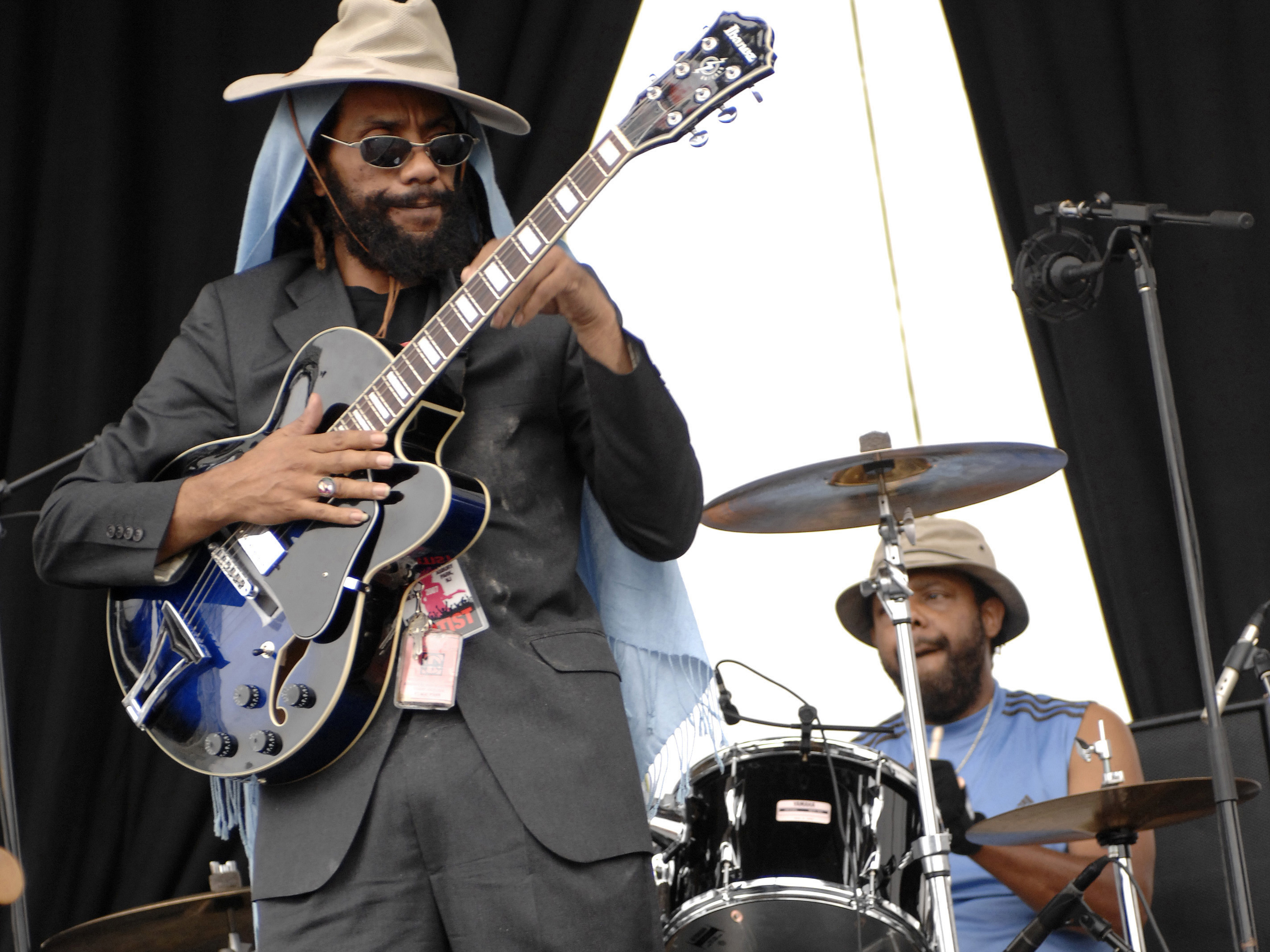
Earl Hudson
Rastafarian punk band Bad Brains pioneered the late '70s/early '80s hardcore sound in Washington DC, and they were powered from the back by the inimitable Earl Hudson, who matched the bands' furiously fast guitar and intense vocals with incredible energy and polyrhythmic skill.
The band fused elements of reggae, funk, hip-hop and soul into their punk rock, and Earl was able to deliver adeptly whatever the songs required. The band had actually started out life playing jazz fusion, which accounts for not only the band's surprising musicality (at that sort of speed), but also Earl's incorporation of the complex rhythms that gave them stand-out from their contemporaries.
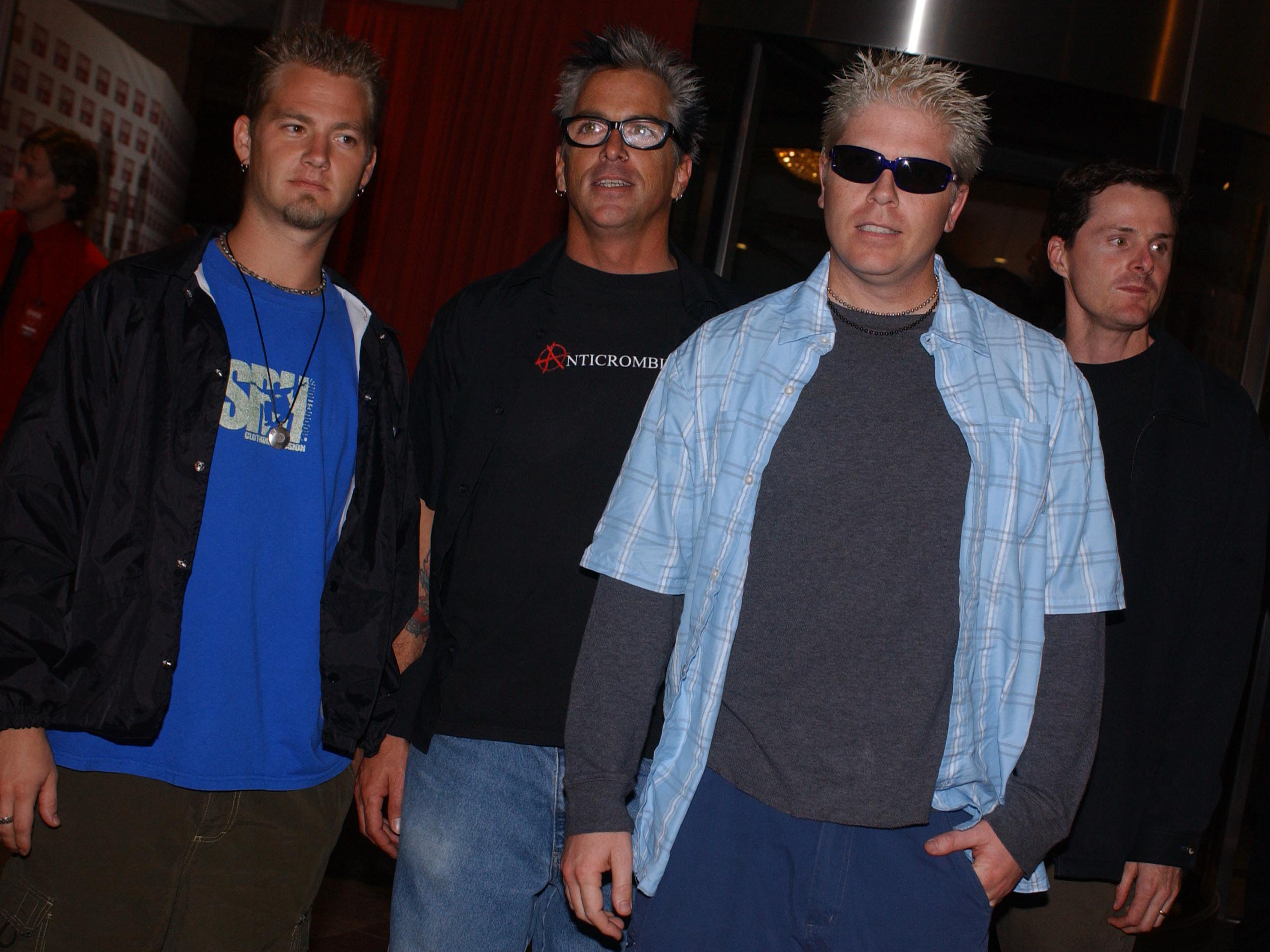
Ron Welty
Ron Welty was the Offspring's drummer from 1987 until 2003, and as such played on the Orange County punk rockers' finest work including Smash, Ixnay On The Hombre and Americana.
Ron got an entry in Rhythm's recent 101 Greatest Drum Intros with the Offspring's Smash hit, 'Come Out And Play', which he starts with a beat played between his hi-hat stand and snare, with a little stepped hat in there for good measure, before a meaty kick and snare brings in the verse.

Want more?
Read the full interview with Prince drummer Hannah Ford inNovember's Rhythmmagazine, available from all good newsagents, online frommyfavouritemagazines.comand oniPhone and iPad from Apple Newsstand.